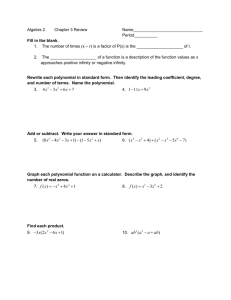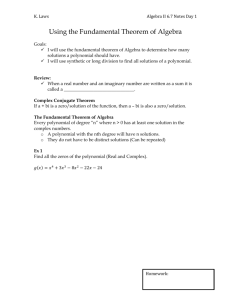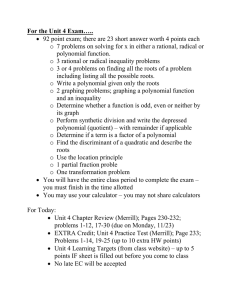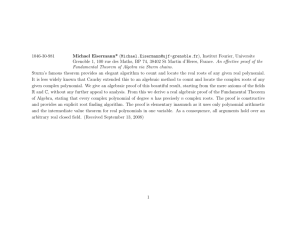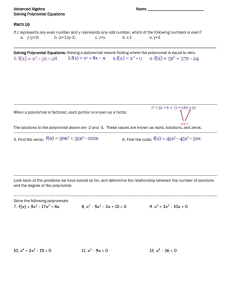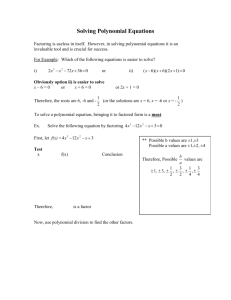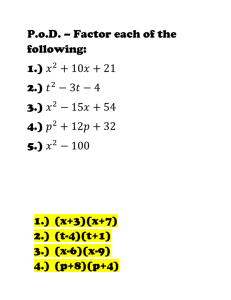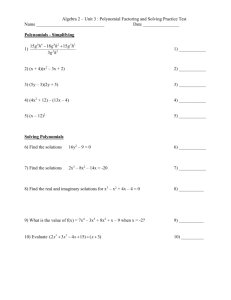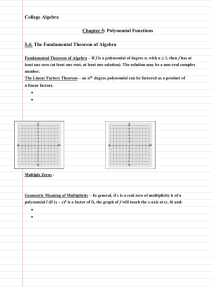Section 3-6 Fundamental Theorem of Algebra
advertisement
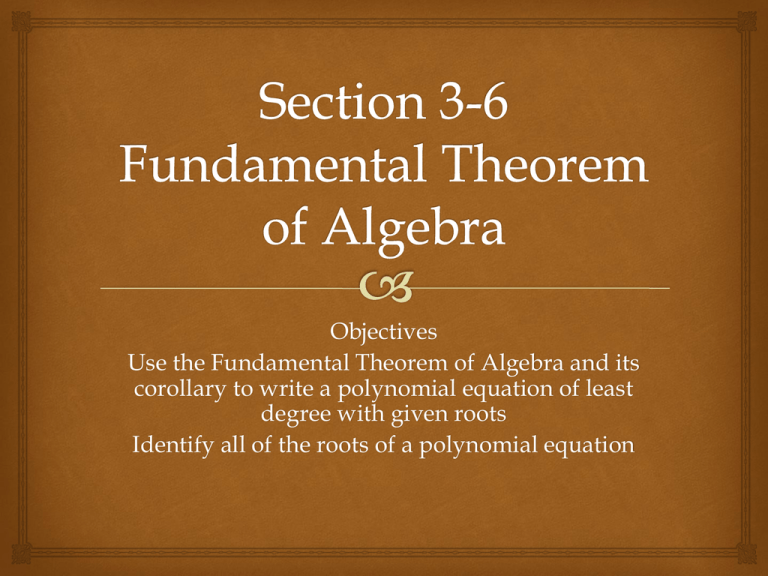
Objectives Use the Fundamental Theorem of Algebra and its corollary to write a polynomial equation of least degree with given roots Identify all of the roots of a polynomial equation Fundamental Theorem of Algebra You have learned several important properties about real roots of polynomial equations You can use this information to write polynomial function when given zeros Writing Polynomial Functions Write the simplest polynomial with roots –1, 2 , and 4 3 Write the simplest polynomial function with roots -2, 2, and 4 Fundamental Theorem of Algebra Notice that the degree of the function in Example 1 is the same as the number of zeros. This is true for all polynomial functions. However, all of the zeros are not necessarily real zeros. Polynomial functions, like quadratic functions, may have complex zeros that are not real numbers. Fundamental Theorem of Algebra Using this theorem, you can write any polynomial function in factored form To find all roots of a polynomial equation, you can use a combination of the Rational Root Theorem, the Irrational Root Theorem, and methods for finding complex roots, such as the quadratic formula Finding All Roots of a Polynomial Solve x4 – 3x3 + 5x2 – 27x – 36 = 0 by finding all roots Finding All Roots of a Polynomial Solve x4 + 4x3 – x2 +16x – 20 = 0 by finding all roots Writing a Polynomial Function with Complex Zeros Write the simplest function with zeros 2 + i, 1. , and Problem Solving Application A silo is in the shape of a cylinder with a coneshaped top. The cylinder is 20 feet tall. The height of the cone is 1.5 times the radius. The volume of the silo is 828 cubic feet. Find the radius of the silo. The cylinder and the cone have the same radius x. The answer will be the value of x
